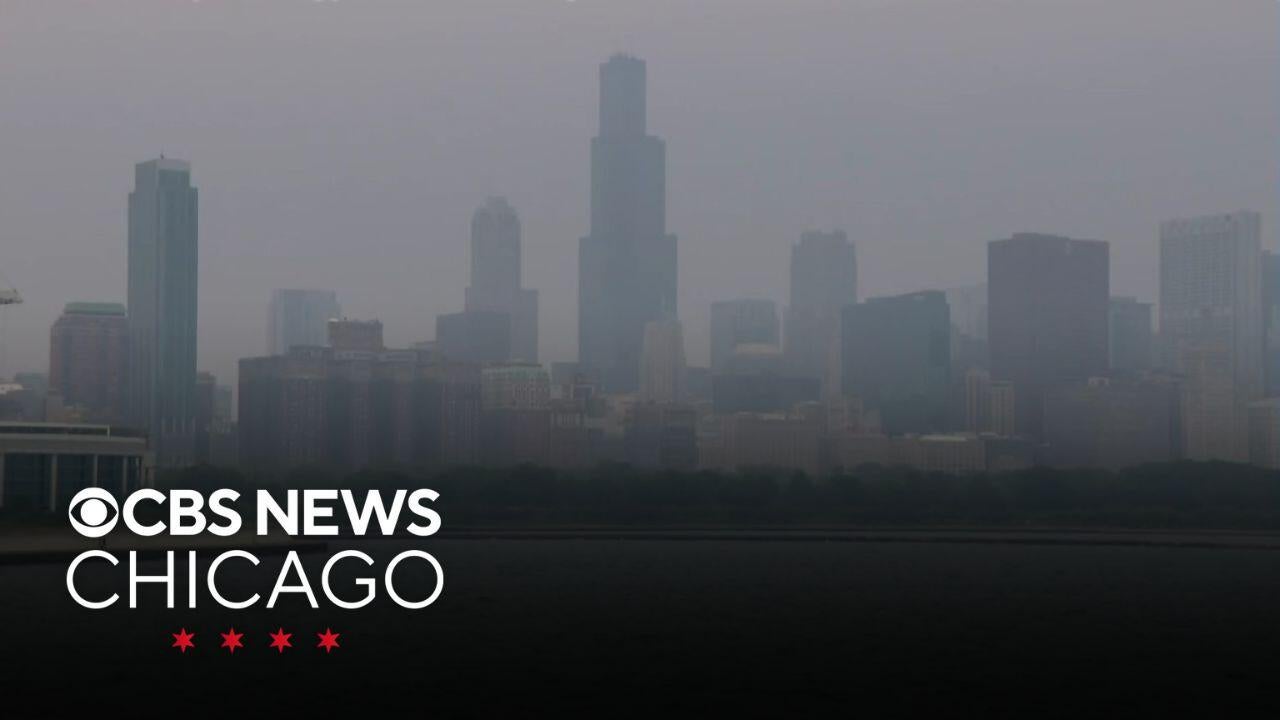Chicago air quality alert extended through Friday as Canada wildfire smoke pushes AQI to unhealthy levels
An Air Quality Alert for Chicago and the suburbs has been extended through Friday as smoke from Canadian wildfires continues to blanket the area and push the AQI into red levels.
The National Weather Service has extended its alert for McHenry, Lake, Kane, DuPage, Kendall, Grundy, Cook and Will counties through Friday, June 6.
At times on Thursday morning, Chicago ranked second-worst in air quality around the world, right behind Dakar, Senegal, according to
By 12:30 p.m., the Air Quality Index had reached unhealthy levels in the entire Chicago area, with showing the city with an AQI of 163, the north and west suburbs with an AQI of 158 and the south and west suburbs also with an AQI of 163, all well into the red category.
"Good" air quality in the green category is an index of 0 to 50.
While you couldn't really smell the smoke in downtown Chicago Thursday, the haze was apparent. There have been dozens of active fires in Canada, forcing more than 33,000 people to evacuate from their homes. So far, two people have died.
People with heart or lung disease, older adults, children and teens should take steps to avoid strenuous outdoor activities, keep the duration of outside activities short and try to move activities indoors if at all possible.
Everyone, regardless of age or health status, should try to shorten the amount of time they spend active outdoors, take part in less strenuous activities, and wait until the air quality is improved to be active outdoors.
Chicago Public Schools also sent a letter home warning parents kids should limit time outside.
"We recommend people stay inside as much as possible," said Dr. Alex Sloboda, with the Chicago Department of Public Health.
Does running your air conditioner make a difference on the air quality inside your home?
"If it has a filter on it," Sloboda said, adding that filtered or even just circulating air can help. So can running an air purifier.
Scientists and climate experts said climate change is playing a role in the wildfire smoke now impacting Chicago, and such incidents will happen more often moving forward.
Common symptoms you may notice from the increased air pollution include itchy throat, coughing and some irritation. And if you want to mask to help protect yourself from the particles, Dr. Alex Sloboda of the Chicago Department of Public Health said there's only one real option.
"It needs to be an n95 because those particles are so small," Sloboda said.
And what about air conditioners or air purifiers? Sloboda said air conditioners and window units can help if they have filters, and that generally just circulating the air in your home helps. Air purifiers can also help improve the quality of the air in your home.
The Canadian fires began in mid-May.
Officials declared a state of emergency in Manitoba and Saskatchewan, where crews and military forces were battling this week to try to contain dozens of out-of-control fires.





